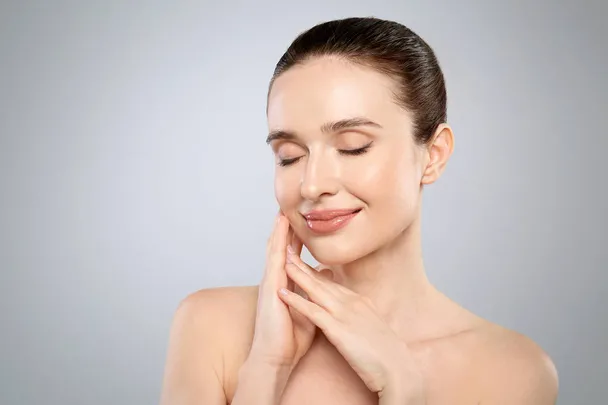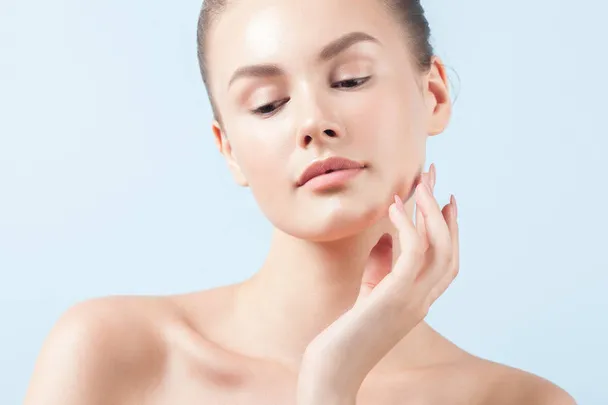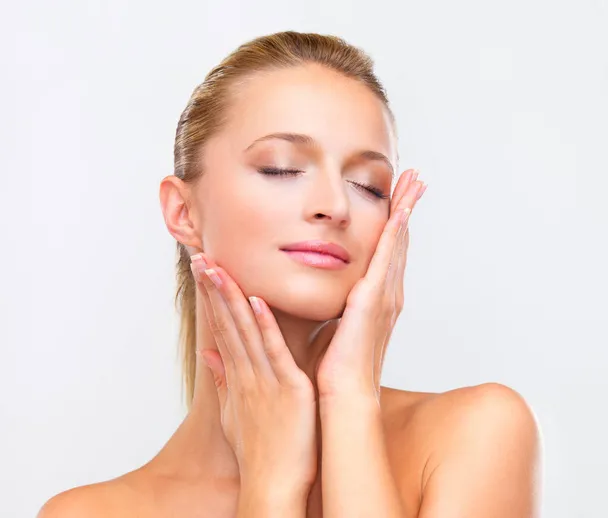Having radiant, glowing skin is a goal for many, but achieving it often requires a combination of proper skincare techniques and healthy lifestyle habits. Your skin is the largest organ of your body and serves as a protective barrier against environmental factors, so taking care of it is essential not only for appearance but also for overall health. In this article, we’ll explore some skincare essentials and tips to help you achieve that coveted glow.
Cleansing:
Cleansing serves as the cornerstone of an effective skincare regimen, providing the necessary groundwork for maintaining healthy and vibrant skin. It’s not just about removing makeup at the end of the day; it’s about ridding your skin of environmental pollutants, excess oil, sweat, and other impurities that accumulate over time. By incorporating a gentle cleanser tailored to your specific skin type, you can ensure a thorough cleanse without compromising the natural oils that keep your skin balanced and hydrated.
Choosing the right cleanser is key. Look for products formulated with mild, non-irritating ingredients that won’t disrupt the skin’s delicate pH balance or strip away its protective barrier. Whether you have dry, oily, combination, or sensitive skin, there’s a cleanser out there suited to your needs. Avoid harsh cleansers containing sulfates or alcohol, as these can be too drying and may exacerbate skin issues.
Consistency is crucial when it comes to cleansing. Make it a habit to cleanse your face twice daily, in the morning and before bed. In the morning, cleansing helps to remove any sweat, oil, or residue that may have accumulated overnight, while in the evening, it’s essential to cleanse away makeup, sunscreen, and the day’s grime to allow your skin to breathe and regenerate overnight.
When cleansing, take your time and be thorough. Gently massage the cleanser onto damp skin using circular motions, paying attention to areas prone to congestion, such as the nose, chin, and forehead. Rinse thoroughly with lukewarm water, ensuring that all traces of cleanser and impurities are removed. Pat your skin dry with a soft towel, avoiding harsh rubbing, which can cause irritation.
In addition to your regular cleansing routine, consider incorporating a double cleanse method, especially if you wear makeup or sunscreen. Start with an oil-based cleanser to dissolve makeup and impurities, followed by a water-based cleanser to remove any remaining residue and cleanse the skin more deeply.
Exfoliation:
Exfoliation plays a crucial role in maintaining healthy and radiant skin by removing dead skin cells that can accumulate on the surface over time. These dead cells can cause the skin to appear dull, rough, and uneven, making it harder for skincare products to penetrate effectively. Regular exfoliation helps to slough off these dead skin cells, revealing smoother, brighter skin underneath. By incorporating a gentle exfoliant into your skincare routine 2-3 times a week, you can promote cell turnover and encourage the growth of new, healthy skin cells. This not only improves the texture and tone of your skin but also enhances its overall appearance.
However, it’s essential to exfoliate with caution and not to overdo it. Over-exfoliation can disrupt the skin’s natural barrier, leading to irritation, redness, and sensitivity. It can also strip the skin of its natural oils, causing dryness and inflammation. To prevent these issues, choose a gentle exfoliant formulated with mild ingredients, such as alpha hydroxy acids (AHAs) or beta hydroxy acids (BHAs), which can effectively remove dead skin cells without causing irritation.
When exfoliating, apply the product to damp skin and massage it in gentle, circular motions for about 30 seconds to a minute. Focus on areas prone to dryness or congestion, such as the T-zone, but be careful not to scrub too vigorously, as this can aggravate the skin. After exfoliating, rinse your face thoroughly with lukewarm water and pat it dry with a clean towel.
In addition to physical exfoliants, such as scrubs or brushes, you can also consider chemical exfoliants, such as serums or toners containing AHAs or BHAs. These ingredients work by gently dissolving dead skin cells and promoting cell turnover, revealing smoother, more radiant skin over time. Regardless of the type of exfoliant you choose, it’s essential to listen to your skin and adjust your exfoliation frequency based on its response. If you experience any signs of irritation or sensitivity, scale back on exfoliation and give your skin time to recover.
Hydration:
Hydration is undeniably essential for achieving and maintaining plump, radiant skin. Properly hydrated skin not only looks healthier and more youthful but also functions better as a protective barrier against environmental aggressors. One of the most effective ways to keep your skin hydrated is by incorporating a lightweight, hydrating moisturizer into your daily skincare routine.
Opt for a moisturizer that is suitable for your skin type and feels comfortable on your skin. Lightweight formulas are ideal for daily use, as they provide hydration without feeling heavy or greasy, making them suitable for all skin types, including oily and combination skin. These moisturizers work to lock in moisture and prevent water loss, helping to maintain the skin’s natural moisture balance.
When selecting a moisturizer, pay attention to the ingredients list. Look for hydrating ingredients like hyaluronic acid and glycerin, which are known for their ability to attract and retain moisture in the skin. Hyaluronic acid, in particular, has the remarkable capacity to hold up to 1000 times its weight in water, making it an excellent hydrating agent for achieving a dewy, plump complexion.
In addition to hydrating moisturizers, consider incorporating hydrating serums or essences into your skincare routine. These lightweight, water-based formulas penetrate deeply into the skin, delivering intense hydration and nourishment. Apply these products before your moisturizer to boost hydration levels and enhance the overall effectiveness of your skincare regimen.
Consistency is key when it comes to hydration. Make it a habit to moisturize your skin twice daily, in the morning and evening, to keep it hydrated and supple. Apply your moisturizer or hydrating serum to clean, dry skin, gently massaging it in using upward and outward motions. Don’t forget to include your neck and décolletage, as these areas are often neglected but are just as prone to dehydration and premature aging.
In addition to topical hydration, remember to hydrate your skin from the inside out by drinking plenty of water throughout the day. Aim for at least eight glasses of water per day to help maintain optimal hydration levels and support overall skin health.
Sun Protection:
Sun protection is paramount when it comes to maintaining healthy, youthful-looking skin. Sun exposure is a primary culprit behind premature aging and skin damage, including wrinkles, fine lines, dark spots, and even skin cancer. Therefore, it’s crucial to shield your skin from harmful UV rays by incorporating proper sun protection measures into your daily skincare routine.
The first line of defense against sun damage is wearing a broad-spectrum sunscreen with a minimum SPF (Sun Protection Factor) of 30. Broad-spectrum sunscreens protect against both UVA and UVB rays, which can cause different types of damage to the skin. Apply sunscreen generously to all exposed areas of your skin, including your face, neck, ears, and hands, at least 15 minutes before sun exposure.
It’s essential to wear sunscreen every day, regardless of the weather or season. UV rays can penetrate through clouds and windows, so even on overcast days or when indoors, your skin is still at risk of sun damage. Make applying sunscreen a non-negotiable step in your morning skincare routine to ensure comprehensive protection.
In addition to applying sunscreen in the morning, it’s crucial to reapply it throughout the day, especially if you’re spending an extended period outdoors or engaging in activities that may cause sweating or swimming. As a general rule of thumb, reapply sunscreen every two hours, or more frequently if you’re sweating heavily or swimming.
When choosing a sunscreen, opt for lightweight, non-comedogenic formulas that won’t clog pores or feel heavy on the skin. Look for sunscreens that are labeled as “water-resistant” if you’ll be participating in water activities or sweating profusely. Consider using a facial moisturizer or makeup with built-in SPF for added convenience and protection.
In addition to sunscreen, consider other sun protection measures such as seeking shade during peak sun hours (10 am to 4 pm), wearing protective clothing, including hats and sunglasses, and avoiding tanning beds altogether.
Healthy Diet:
Maintaining a healthy diet is not only essential for overall well-being but also plays a significant role in the health and appearance of your skin. What you eat can directly impact your skin’s condition, affecting its radiance, clarity, and resilience. By incorporating nutrient-rich foods into your diet and staying hydrated, you can promote skin health from the inside out and achieve a vibrant, glowing complexion.
Fruits, vegetables, and nuts are powerhouse foods packed with essential vitamins, minerals, and antioxidants that promote skin health and combat free radical damage. Antioxidants, such as vitamins A, C, and E, help neutralize free radicals, which are unstable molecules that can damage skin cells and accelerate aging. Incorporating a variety of colorful fruits and vegetables into your diet ensures that you’re getting a wide range of antioxidants to support skin radiance and vitality.
Some antioxidant-rich foods to include in your diet are berries (such as blueberries, strawberries, and raspberries), leafy greens (like spinach, kale, and Swiss chard), citrus fruits (such as oranges, lemons, and grapefruits), and nuts (including almonds, walnuts, and Brazil nuts). These foods not only provide essential nutrients for skin health but also help promote collagen production, improve skin elasticity, and protect against UV damage.
In addition to eating antioxidant-rich foods, staying hydrated is crucial for maintaining skin hydration and promoting a healthy complexion. Water plays a vital role in flushing out toxins from the body, regulating body temperature, and delivering nutrients to the skin cells. Aim to drink at least eight glasses of water per day, or more if you’re physically active or live in a hot, dry climate.
Incorporating other hydrating beverages, such as herbal teas and infused water, can also contribute to your overall hydration levels and support skin health. Limiting consumption of sugary and caffeinated beverages, which can dehydrate the body and exacerbate skin issues, is also beneficial for maintaining skin hydration.
Get Adequate Sleep:
Getting adequate sleep is not only vital for overall health and well-being but also plays a crucial role in maintaining the health and appearance of your skin. During sleep, your body undergoes a process of repair and regeneration, which is essential for keeping your skin looking youthful, radiant, and healthy. Here’s why quality sleep is so important for skin health and how you can ensure you’re getting enough rest each night.
Quality sleep is essential for skin regeneration and repair. Aim for 7-8 hours of uninterrupted sleep each night to allow your skin cells to rejuvenate and for your body to produce collagen, which helps maintain skin elasticity and firmness.
During sleep, your body enters a state of rest and repair, during which it can focus on repairing and rebuilding damaged cells, including those in your skin. This process of skin regeneration is critical for maintaining a healthy complexion and repairing any damage caused by environmental stressors, such as UV radiation, pollution, and oxidative stress.
One of the essential functions that occur during sleep is the production of collagen, a protein that provides structure and elasticity to the skin. Collagen production peaks during the night, particularly during the deep stages of sleep, allowing your skin to repair and rebuild itself. Adequate collagen levels are essential for maintaining skin elasticity, firmness, and overall youthfulness.
In addition to collagen production, sleep also regulates other key processes that are essential for skin health, such as hydration, inflammation, and the repair of DNA damage. Lack of sleep can disrupt these processes, leading to increased inflammation, dehydration, and impaired skin barrier function.
To ensure you’re getting enough quality sleep each night, establish a regular sleep schedule and create a relaxing bedtime routine. Aim to go to bed and wake up at the same time every day, even on weekends, to regulate your body’s internal clock. Create a peaceful sleep environment by dimming the lights, reducing noise, and avoiding stimulating activities before bedtime.
Limit your exposure to screens, such as smartphones, tablets, and computers, in the hour leading up to bedtime, as the blue light emitted by these devices can interfere with your body’s natural sleep-wake cycle. Instead, engage in relaxing activities, such as reading, meditating, or taking a warm bath, to help signal to your body that it’s time to wind down.
Stress Management:
Managing stress is not only crucial for your overall well-being but also plays a significant role in maintaining healthy, glowing skin. Chronic stress can take a toll on your skin, leading to a range of issues such as breakouts, dullness, and increased sensitivity. By incorporating stress-reducing activities into your daily routine, you can promote relaxation, improve skin health, and enhance your overall quality of life.
Chronic stress triggers the release of hormones like cortisol, which can wreak havoc on your skin by increasing inflammation, oil production, and disrupting the skin’s natural barrier function. This can lead to a variety of skin concerns, including acne flare-ups, dryness, redness, and premature aging. Additionally, stress can impair the skin’s ability to repair and regenerate itself, making it more prone to damage and sensitivity.
To combat the effects of stress on your skin, it’s essential to prioritize stress management techniques that promote relaxation and overall well-being. Practices such as meditation, yoga, deep breathing exercises, and mindfulness can help calm the mind, reduce cortisol levels, and promote a sense of peace and balance.
Meditation involves focusing your attention and quieting the mind, which can help reduce stress and anxiety levels. Even just a few minutes of meditation each day can have a profound impact on your overall sense of well-being and skin health.
Yoga combines physical postures, breathwork, and meditation to promote relaxation and improve flexibility and strength. Practicing yoga regularly can help reduce stress levels, improve circulation, and enhance skin health by increasing oxygen and nutrient delivery to the skin cells.
Deep breathing exercises, such as diaphragmatic breathing or belly breathing, can help activate the body’s relaxation response and calm the nervous system. By focusing on slow, deep breaths, you can reduce stress, lower cortisol levels, and promote a sense of calm and relaxation.
In addition to these practices, engaging in regular physical activity, spending time outdoors in nature, connecting with loved ones, and pursuing hobbies and interests can also help reduce stress levels and improve skin health.
In conclusion, achieving glowing skin requires a holistic approach that includes proper cleansing, regular exfoliation, hydration, sun protection, a healthy diet, adequate sleep, and stress management. By incorporating these skincare essentials into your daily routine, you can nurture your skin from the inside out and achieve a radiant complexion that glows with health and vitality.










